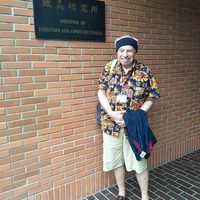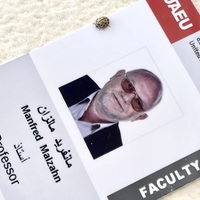Papers by Amy Doffegnies

As Myanmar has transitioned from military rule and enters a post-authoritarian era, humanrights d... more As Myanmar has transitioned from military rule and enters a post-authoritarian era, humanrights discourse, formerly prohibited, is openly the focus of myriad local civil societyorganisations working for change. However, the promotion of human rights under AungSan Suu Kyi’s government is fraught with difficulty: grave human rights abuses continuewithin the country’s borders and a tide of religious nationalism contains distinct antihumanrights sentiment. In this context, this thesis considers intercultural human rightsscholarship and specifically the ‘receptor approach’ that posits ‘social institutions’ and‘cultural values’ as ‘resources’ or ‘receptors’ for human rights implementation at the locallevel. In Myanmar, cultural values and social institutions cannot be considered apart fromBuddhism, the majority religion. Following this, the thesis considers the question ofwhether Buddhist social institutions and cultural values have the potential to act as‘building blocks’ for human right...
This chapter will examine the role of university students in Myanmar who, after the demonstration... more This chapter will examine the role of university students in Myanmar who, after the demonstrations in 1988 and the resulting fragmentation of universities were forced into exile. It tracks the experience of those who returned more than 20 years' later to play a leading role in the transition to democracy. It looks particularly at the obstacles they faced in accessing education through the state university system, the strategies they used to continue their studies during this period and their eventual contribution to democratic transition, peace processes and educational reform. It identifies the significance of civil society organisations and foreign universities in providing important alternative training in human rights and democracy.
In this article, I attempt to decipher the intangible and pre-theoretical dimension of South Asia... more In this article, I attempt to decipher the intangible and pre-theoretical dimension of South Asian modernity through the portal of cinema. By reading the South Asian experience through the inherently political realm of visual culture, this article examines the role of the cinematic image in the dissemination of elite ideology and the formation of political subjects. Drawing on the role of Tamil cinema and its actors in forming the populace of political devotees, the article unravels the complexities of aesthetic experience and its relation to ideas of the self. Tamil cinema is then contrasted with examples from Hindi and Burmese cinema, in which visual culture appears as a site of contestation and formation of multiple meanings. Cinema, in its vast abundance, therefore, can become invaluable material and site for the exploration of everyday struggle in South Asia.
Journal of Contemporary Asia
Asian Journal of Social Science
In this article, I attempt to decipher the intangible and pre-theoretical dimension of South Asia... more In this article, I attempt to decipher the intangible and pre-theoretical dimension of South Asian modernity through the portal of cinema. By reading the South Asian experience through the inherently political realm of visual culture, this article examines the role of the cinematic image in the dissemination of elite ideology and the formation of political subjects. Drawing on the role of Tamil cinema and its actors in forming the populace of political devotees, the article unravels the complexities of aesthetic experience and its relation to ideas of the self. Tamil cinema is then contrasted with examples from Hindi and Burmese cinema, in which visual culture appears as a site of contestation and formation of multiple meanings. Cinema, in its vast abundance, therefore, can become invaluable material and site for the exploration of everyday struggle in South Asia.
Book chapters by Amy Doffegnies
Universities and Conflict: The Role of Higher Education in Peacebuilding and Resistance, 2018
This chapter will examine the role of university students in Myanmar who, after the demonstration... more This chapter will examine the role of university students in Myanmar who, after the demonstrations in 1988 and the resulting fragmentation of universities were forced into exile. It tracks the experience of those who returned more than 20 years' later to play a leading role in the transition to democracy. It looks particularly at the obstacles they faced in accessing education through the state university system, the strategies they used to continue their studies during this period and their eventual contribution to democratic transition, peace processes and educational reform. It identifies the significance of civil society organisations and foreign universities in providing important alternative training in human rights and democracy.
Media Articles by Amy Doffegnies











Uploads
Papers by Amy Doffegnies
Book chapters by Amy Doffegnies
Media Articles by Amy Doffegnies